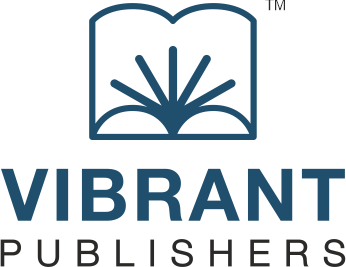Home
-
Blogs on HR, Diversity, and Organizational Success
-
People Power: Discovering What the World of Human Resources Contains

People Power: Discovering What the World of Human Resources Contains
by Vibrant Publishers
People are the core of an organization. An organization is not a machine but a living being composed of different people structured in different roles. In her podcast, People Power: Insights and Strategies for HR professionals, Dr. Denean Robinson, a professor and consultant in the field of human resources and leadership, explains how understanding people is central to the work of human resource professionals. Here are some snippets from the podcast which summarize the importance of understanding and working with an organization’s people power.

Understanding the “personality” of an organization
The strength that an HR professional has is their emotional intelligence, which no AI recruiter or Applicant Tracking System (ATS) can replicate. To understand how people work, HR professionals have to be self-aware and tuned to the states of mind and emotions of other people. This will help them understand how people’s personalities impact workplace dynamics, which, in turn, creates the “personality” for the organization, which again decides what kind of people will be a good fit for the roles offered there. Understanding human behavior will help HR professionals understand how the “mind” of the organization works and what kind of people need to be hired.
Evaluating the personality of a potential employee
HR professionals need to be adept with their communication skills so that they can draw out the person they’re evaluating and create a mental personality profile on the basis of what they say. They need to skillfully add up what they see on the resume plus how the person is presenting themself in the interview. They are responsible for developing a framework for smooth functioning of human capital. This means that HR professionals need to be good “human readers”—able to gauge whether a potential employee will live up to the role they’re applying for.
Taking on the role of a leader
“Companies have two customers—their external customers and their employees,” says Dr. Denean Robinson. Understanding what the external buyer wants is one thing, but you cannot do that without gaining insights into the characteristics of your own employees first.
The role of an HR professional is not merely limited to hiring people but also overseeing how employees are doing within the organization and whether their needs are being met. They are the ones who report back to the CEO about how well people are adapting to their roles. Strong leadership skills are required to intervene if something is going wrong and bring it to the notice of the higher-ups. HR professionals are the ones making decisions that will potentially impact the way the organization works, including hiring across diverse backgrounds and experience profiles.
Conclusion
As American researcher, author, and speaker James Collins said, “Great vision without great people is irrelevant.” An HR professional’s first and foremost duty is understanding what type of people the organization needs to achieve its full potential, while lifting up the people who work for it. Human capital are the rungs of the ladder which will take the company to success. If you listen to the full podcast episode on Spotify, you’ll understand the secrets behind unlocking the people-power of your company. Stay tuned for the third blog in this series: an interesting reminder of the new challenges impacting modern HR departments.
Listen to the full podcast on Spotify here.
Read the third blog in this series here.
Other resources for learning about human resourcesHuman Resource Management Essentials You Always Wanted To Know
Leadership Essentials You Always Wanted To Know
Decision Making Essentials You Always Wanted To Know
Organizational Behaviour Essentials You Always Wanted To Know
Share











